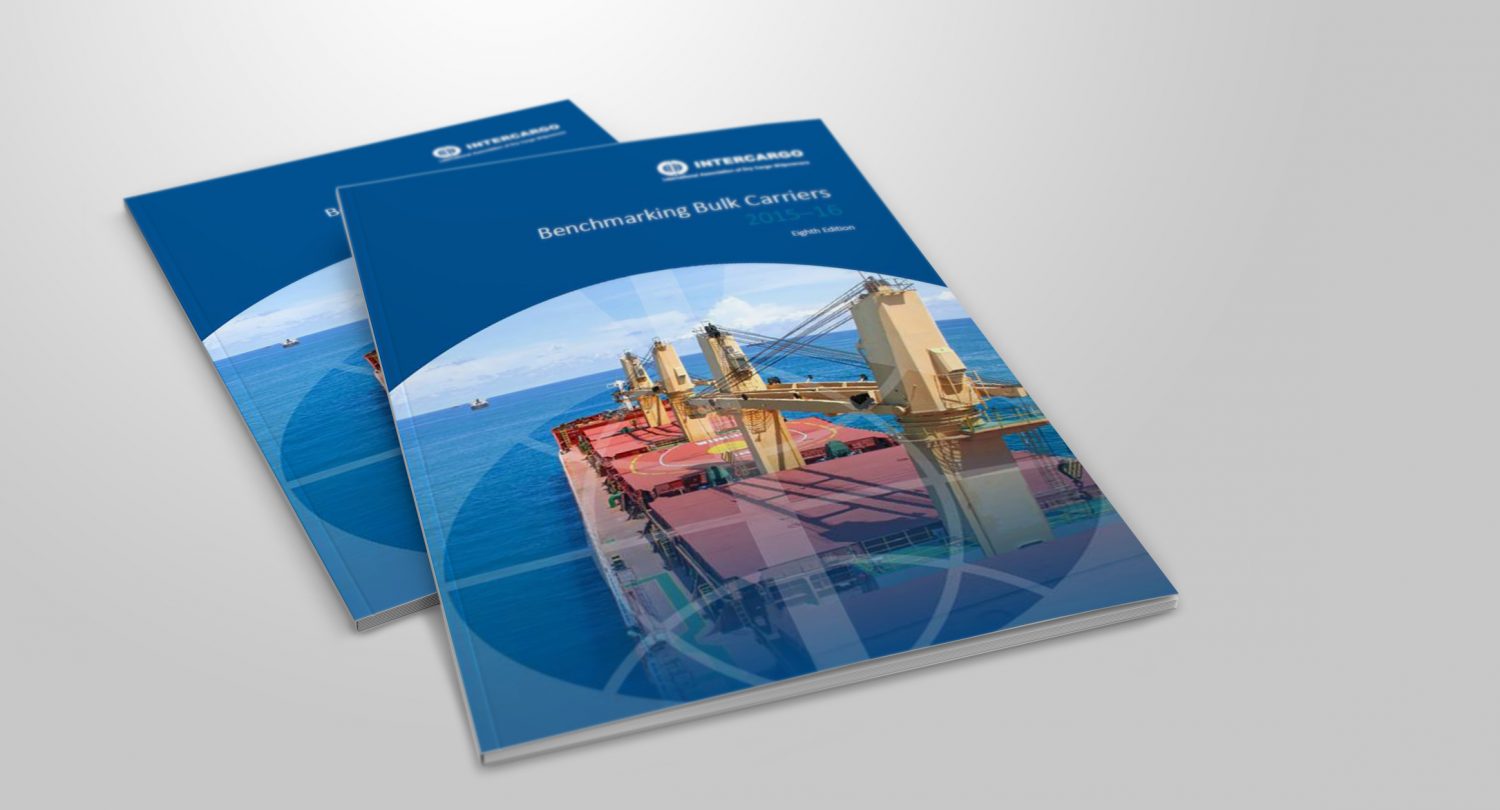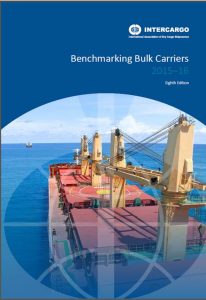
The INTERCARGO Benchmarking Bulk Carriers 2015-16 report has been published. Members are receiving their free copy. Non-members may order the report at info@intercargo.org or from Witherby Publishing Group (www.witherbys.com).

EXECUTIVE SUMMARY
INTERCARGO’s 2015-2016 Benchmarking report is published at challenging times for its members, the dry cargo shipowners. Through to 2016 the market suffered with the Baltic Dry Index diving to a historic low, before showing improvement in the second half of the year. With revenues decreasing to unsustainable levels, many shipowners’ economic viability was compromised, newbuilding activity slowed down, and demolitions rose. This crisis as always created opportunities, as the increased levels of sale-and-purchase activity demonstrated. As a result, the supply side will hopefully enjoy slower growth in the next years, in the face of more uncertain demand patterns. In this challenging commercial context, regulatory requirements have been progressing at a rapid pace.
INTERCARGO’s commitment to safety, efficiency, and the environment, have become reference themes, even more so as, especially in difficult times, ‘quality’ makes the difference, which is otherwise INTERCARGO’s primary focus. The present report is indeed largely about quality in dry cargo shipping.
With safety for crews and ships coming first, casualties were marked by the tragic loss of bulk carrier “Bulk Jupiter” on 2 Jan. 2015. Cargo shift and liquefaction remain great concerns for the safe carriage of dry bulk cargoes. The importance of flag States’ timely submission of casualty investigation reports to IMO should be stressed, as a means for identifying the cause of incidents and enabling corrective actions to be taken.
Classification Societies provide valuable services to the maritime industry as regards maritime safety and pollution prevention based on the accumulation of maritime knowledge and technology. IACS members once again show as outperforming non-IACS Classification Societies in terms of market share and quality of their fleet.
Using indices, such as Deficiencies per Inspection (DPI), the report also shows that leading Flag Registers either improved their performance or maintained it since our previous Benchmarking report.
We are proud to note that INTERCARGO-entered ships continue to outperform the industry averages in respect of detentions and deficiencies per inspection, in line with INTERCARGO’s policy that vessels entered by Members should be capable of demonstrating such performance. Shipping companies are invited to benchmark their dry bulk fleet performance against the global DPI index scoring in the relevant section.
Recorded incidents, such as collisions, groundings etc., are put in perspective on a global level for dry bulk carriers by categorising them as Negative Performance Indicators. Consistent reductions have been observed for many of them.
Protection and Indemnity (P&I) cover, as a form of mutual marine insurance that provides cover for broader indeterminate risks such as third-party liabilities, is dominated by the International Group of P&I Clubs. With reference to quality, Clubs belonging to the International Group were assessed as outperforming those Clubs that do not belong to the Group.
An important section of the report is devoted to Port State Control, and how its procedures have evolved. Especially when it comes to the dimension of corruption, INTERCARGO will continue its efforts to persuade regional MoUs to establish self-assessment mechanisms with the objective of targeting corruption within their areas, a problem that has not been sufficiently addressed so far and remains an important open front for international shipping.
In order to facilitate evaluation of problems on an ongoing basis, both Members and non-Members of our Association are offered the opportunity to submit the dedicated Terminal Reporting form to the INTERCARGO Secretariat.
The Benchmarking Report is one of INTERCARGO’s initiatives in its pursuit of a safe, efficient, high quality and environmentally friendly dry cargo shipping industry. Other INTERCARGO’s publications (see last pages of this report about Carrying Solid Bulk Cargoes Safely, and Casualties) and activities (such as participation in Industry Working and Correspondence Groups, and of course at IMO) are related to specific items of our work programme, including Air emissions, Design Standards, Environmental Legislation, Reception Facilities, Lifting Appliances, and Security, to name a few.
If already not one, becoming a Member of INTERCARGO will help our Association strengthen its voice and meet its objectives, always though strategies based on the prime principle of free and fair competition in the dry cargo industry, in order to enhance the interests of its Members and benefit not only dry cargo shipping but also the shipping industry as a whole.
Thank you indeed for supporting our mission.
The INTERCARGO Secretariat


